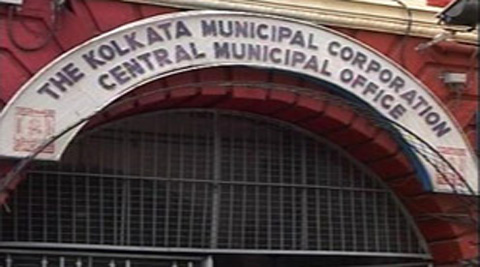An initiative of bringing an economical housing scheme to the urban frame against exceeding demand of housing
Govt. will now endorse regional planning for construction of houses in satellite townships, peri-urban and outermost areas to meet the demand in urban areas. Ministry of HUPA (Housing & Urban Poverty Alleviation) inaugurates an international workshop on planning and developing of peoples’ settlement on June 24th.This programme is designed for urban poor people so that they would get a planned roof within 2022 for their subsistence. Shri Babul Supriyo the minister of HUPA emphasized the need to assist the poverty-stricken people even in the remote places beyond the planning periphery. As a part of this series we might see low-budget, supple flats in Kolkata and in other under developed areas of the city specifically designed for the lower income group. The minister also informed about different initiatives launched by the Govt. to deal with transport hold-ups and housing scarcity in urban areas.
According to the sources the ministry of HUPA is close to finalize a realistic, effectively operating and pragmatic Rental Housing Policy in which might recover 27% of the housing demand for such rental housing. Only an efficient planning can resolve this crying need of housing for different groups of destitute populace and that of against the rising price of the plots, supplies and the availability of local labours. ‘’Pradhan Mantri Awas Yojna (Urban)’’- Which symbolizes home for all the low-income group people is being permitted in the planning regions which are far away from the main city outline. The entire set up needs to be done in the perspective of rural-urban perpetuity like Shyama Prasad Mukherjee Rurban Mission build up- (i.e. a model example for these types of projects). The workshop arranged by the ministry of HUPA for interaction of ideas related to the other same patterned housing projects happened in several south Asia-pacific nations. Countries like- Japan, South Korea, Myanmar, Sri Lanka, Afghanistan, Iran, Iraq, Fizi have attended the workshop. With the success of these Govt. undertaken projects there will be a fixed solution to the housing hunger of under privileged persons.
Month: June 2016
High pricing causes a big dent in the selling quotient, flats remain unused in Chennai
A residential project which was constructed in 1996 by Tamilnadu Housing Board, according to the local real estate agents, requesting annoymity of Tamilnadu, is standing still without residents inside. This area is a covered by creepy entwined floras and paradise for insects and reptiles; before getting any paranormal idea from the mossy frame let’s disclose the original truths behind it- according to the local sources this building which was built for a police station has been the content of shadows for past 20 years, this is due to abnormal pricing during those years when the market rate was approx 2 lakhs per ground. This particular building and many other buildings constructed by Tamilnadu Housing Board (TNHB) was coded with immoderate base amount; as a result the local gram panchayat failed to take over those buildings miserably. The current market rate of the same property is 50 times more than the earlier rate. If we go through the TNHB projects- a police station, a huge library, a community hall, a fire station, few ration shops and six acres of land sanctioned for bus terminus have been unclaimed due to unusual pricing.
According to the retired officials storming land prices, the state Govt. of Tamilnadu is using its agencies to seize lands. TNHB and the Govt. by extension is somehow deviated from their prime purpose which providing the lower and middle earning inhabitants affordable residential apartments. Besides the holding-back attitude in delivering the properties and sly changes in their terms and conditions took these projects under water. Obviously TNHB is not ready to accept these allegations and the secretary of the state housing and urban development Mr. Dharmendra Pratap Yadav stated,’’ TNHB had never received any land for free of cost, not even from the state Govt. Again if the land is meant for some other purpose and used for some other, can’t be done without CMDA’s assent.’’ Ayapakkam Gram Panchayat officials contended 23 acres land, which was supposed to be taken for constructing educational institutions but was utilized for housing board without CMDA’s approval. Near about 660 plots have come up on this 23 acre property. Former CMDA officials indicate that TNHB has a track record of evading the planning authority consent, as a provision in the Housing Board Act set them aside to do so. As per the statement of a retired CMDA official, ‘’ TNHB alter land plans with state Govt. assent. By using some tricky shortcut methods TNHB changed the land rule as per their requirement.
Kolkata is also a metro city like Chennai, but if you notice the indicator of selling flats in Kolkata, the graph remains always static due to the small cost of living and the availability of affordable flats in Kolkata in comparison to the other four major cities in India. Till date you can find projects starting from 10/12 lakhs which is kind of a rare offering in itself. As a result the count of forsaken projects is really low in Kolkata.
KMC is all set to offer an advanced online facility for vital civic services
We have been adapted with a concept from our earlier days i.e. -the procedures which are Govt. undertaken or needs a Govt. consent are always time-taking and full of revolving hassles. What if we say the deficiency resides in our thought process? How many of the civilized people are aware of the computerization of developed infrastructure? The Kolkata Municipal Corporation has taken an initiative to provide the online resolution for fundamental civic services. There is already provision for submitting your property tax online launched by KMC earlier. Taking the initiative a step further now they have come up with the scheme of applying for mutation certificate online for the entire municipal society. This is big news indeed for all the developing residential and commercial property in Kolkata and the willing buyers as well. The KMC assessment department officials are doing the every possible research and modifying the approach before the final inauguration.
Mr. Sovan Chatterjee, the respectable mayor of Kolkata placed a budget of Rs. 3793 crore for the financial year 2015-16 on Thursday. The financial plan focuses upon transformation of the urban infrastructure such as the water supply and sewerage system of the city and also on the computerization of the essential municipal services. At present property owners have to visit the mutation counter on a particular day to get their properties muted where the paper work portion is really less and properties without any lawsuit. For launching the new approach, the KMC assessment department will offer online mutation certificate for the property owners in Kolkata. Instead of visiting to the official counters manually, now such property owners can apply for online certificated from KMC’s registered website. After receiving the application, based on the retort of the property owners KMC would open the opportunity for the mass. Eventually the online sanction of plans and architecture of buildings will take place in its course. According to the mayor 16 civic offices have been drawn into action for fast and necessary improvement of this project.
- Sourced by Liyans news desk
Indian real estate market has been a fascinating investment for the foreign investors
India has been always one of the most loved rich historical, cultural destinations for rest of the overseas countries. There are many foreign avenues for investment in India. Out of which real estate industry in India, has been delivering an invariable resource for the Indian GNP. Easy and bounteous presence of natural resources and local labors have been two steady availabilities which are suppose to be the two solid pillars holding high the infrastructure of Indian real estate industry.
What RBI says: According to the sources when any foreign company is all set for their direct investment in India, there are some predetermined norms by the Indian economical legislature which they are bound to go after. Foreign investment in India is reckoned as FDI only, if the investment is made by equity shares. According to the FDI policy the investment company has to go through prior approval of Indian Govt. and RBI. As per company act 1956 the willing company has to set up a registered company in form their direct representative in India. All FDI activities have to be passed by the Foreign Investment Promotion Board (FIPB), Department of Economic Affairs, and Ministry of Finance.
The present and the possible scenario: Now coming to Housing and Real Estate business (except development of townships, constructions of residential and commercial premises) can’t be the subject to venture of FDI. According to the Department of Industrial Policy and Promotion total FDI inflow in real estate sector during April 2000- Feb 2015 has been around US$ 24.16 billion. The present Central Govt. under the leadership of Mr. Narendra Modi it has been announced ground breaking modifications for property development sector in November 2015 aiming to attract more foreign capital into Indian real estate sector.
Pondering upon the investment statistics: ‘Dalian Wanda Group’- a Chinese property development company has signed a contract with the Haryana Govt. for the development in the real estate sector of northern Haryana. The name of their project is ‘Wanda Industrial New City’, which enrolls an investment of whooping $10 billion against 1300 hectors of land of the state. Another big project is China Fortune Land Development Company which has a giant industrial park project in Haryana. Gezhouba real estate company from China proposes 1000 crore for future investment of Telengana. ‘’These investors are anticipating a big time revolution in the real estate sector of India around 2016’’- said by the financial experts. With the success of these projects the door of prosperity will be opening for the other willing foreign investment companies in Indian real estate industry. Even for Indian economy these investments count a lot for setting Indian real estate sector on a global investment scale for the coming days. Post your property requirement for industrial/commercial or other retailing purpose under these magnificent projects. Japan in collaboration with Indian will be investing likely $2 billion for real estate and industrial project in coming 3yrs. It will highly interesting to observe the response from the real estate market on India against the global economy.
Service tax against under developed properties might go off
Investment on under erection buildings comes with service tax-free! This was the recent verdict of Delhi High Court’s desk where it is said that there will be no service tax related terms between the buyer and the builder related to any under developed real estate project. This judgment is presently applicable only for the Delhi jurisdiction, but it is surely going to bring a major change in the other states’ real estate business in terms of transactional transparency as well. The verdict also added those who bought their property after 2012, should get reimbursement against their prepaid service tax amount. According to the market analysts the tax department is expected to appeal against this law.
(Applied for Delhi as of now)
Here is the synopsis of this take on:
In 2012 service tax on under construction buildings was positively introduced in the market.
Service tax is calculated on 25% of the property value, considering 75% of the plot value.
Service tax is 15%, so that it successfully merges with the 3.75% of the entire property estimation
In Delhi, buyers are abiding by the rule, where in other states people could produce this law against paying the service tax.
Facts which influence on present real estate market statistics
Apart from Delhi for all the buyers of several states have to pay straightway 15% service tax on an under construction asset. Since the constructor is affording the essential service for the developing building, hence the buyer has to pay tax on that service.
Service tax is a fiscal matter of central Govt. The taxes which builders collect from the investors come to the central Govt. account.
In Delhi court filed plead it was said that flat purchasers are not legally responsible to pay service tax since it’s a tricky task to settle on the complete property valuation. The High Court in its sentence said that there is no such compulsory rule of mechanism as per law to bisect the worth of the land. That’s why service tax shouldn’t be on account. From the time when structure of property is precisely a steady asset, the transaction is similar to transfer of land. Since then land is considered to be state subject matter, thus the central Govt. can’t toll service tax on it.
But according to the High Court law tax can be charged on the assortment of the property, thus raising a floor on an existing base is chargeable, since the additional costing has been given by the builder.
People, who bought flats before or around 2012 (the time of service tax introduction), should be refunded the service tax with 6% rate of interest.
Financial experts assume that the tax dept. is apparently to appeal against this law. But until the order resides the property buyers can take standpoint against paying the service tax. In Delhi there is of course no need of doing so but in all other states of India can take the instance in order to avoid service tax.
Above all the builders have to give service tax to the Govt. on time, else it will cost penalty for not paying the tax. Hence it could lay an extra yoke to the builders.




